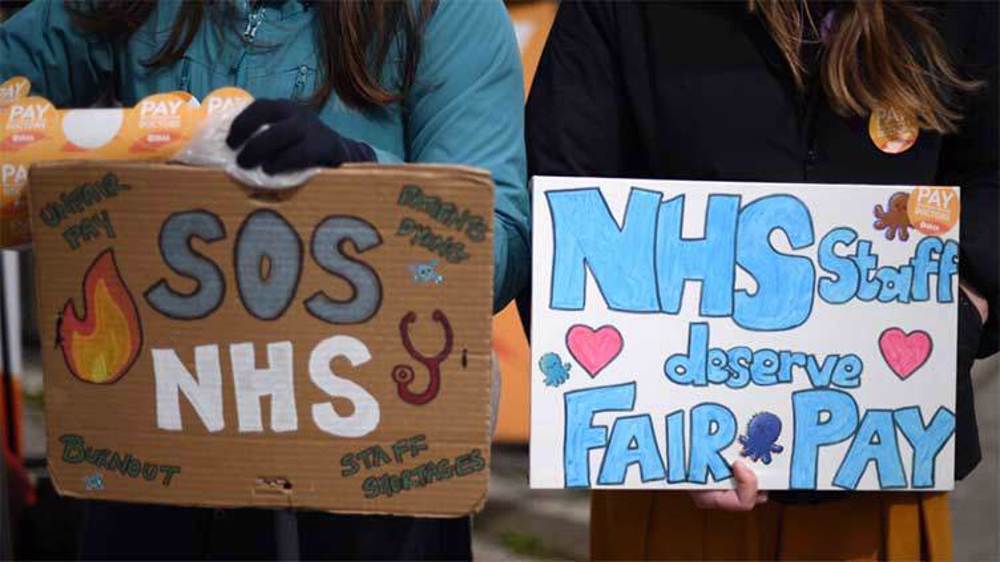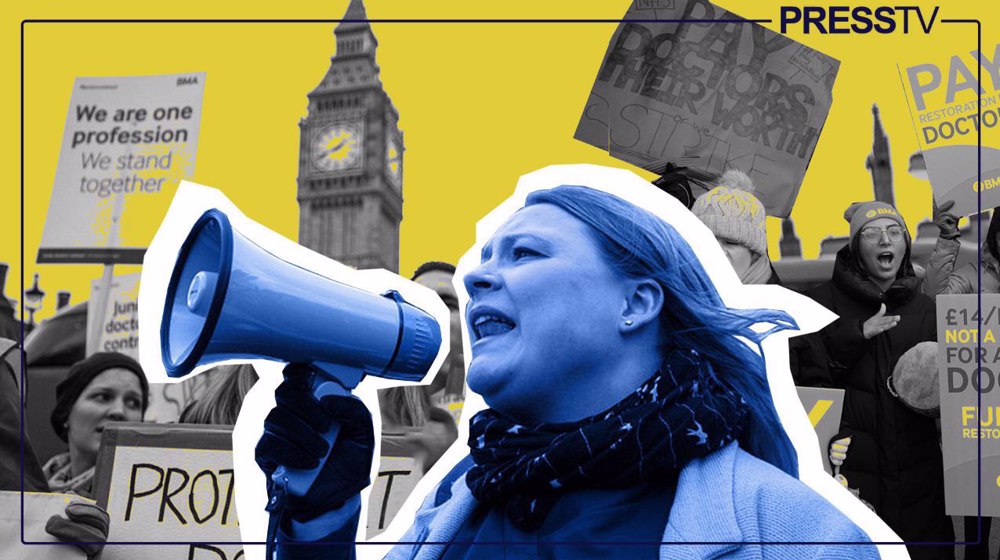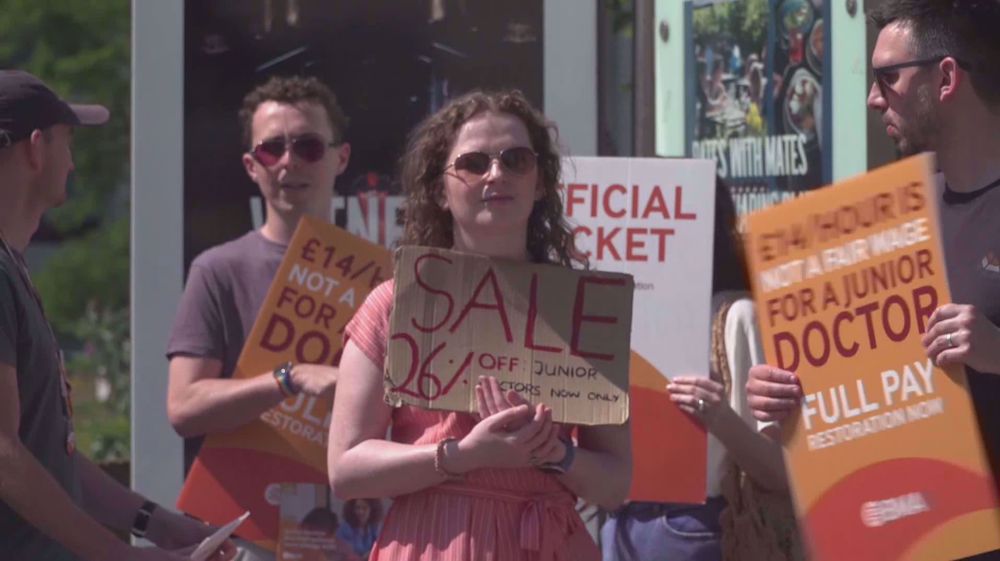Junior doctors stage biggest walk-out in UK health service amid fears of patient safety
Junior doctors in the United Kingdom have staged a five-day walk-out over pay and working conditions, the biggest industrial action in the history of the country’s state-funded National Health Service (NHS) so far.
The unprecedented strike by members of the British Medical Association (BMA) will begin at 7:00 a.m. (0600 GMT) on Thursday and last until 7:00 a.m. on Tuesday.
"The NHS has been running on goodwill and now this is the last chance to change that," said Arjan Sing, a 27-year-old junior doctor, on a picket line outside London's University College Hospital, adding that colleagues were planning to leave for countries that "care about their doctors."
"Doctors have realized they work in a global market, they're not restricted to this country," he said.
"Today marks the start of the longest single walkout by doctors in the NHS's history, but this is still not a record that needs to go into the history books," BMA leaders Robert Laurenson and Vivek Trivedi had said ahead of the walkout.
They went on to say that the strike could be called off if “the UK government will simply follow the example of the government in Scotland and drop their nonsensical precondition of not talking whilst strikes are announced and produce an offer which is credible to the doctors they are speaking with."
The two BMA leaders further stressed that the complete inflexibility seen from the UK government is “baffling, frustrating, and ultimately destructive for everyone who wants waiting lists to go down and NHS staffing numbers to go up.”
About seven million people were waiting for treatment in April -- a record -- with nearly three million waiting more than 18 months, according to the BMA.
The dispute between junior doctors and the UK government has been escalating over the past months. Junior doctors are calling for their 2008-9 pay levels to be restored, while London says this would mean an average pay award of about 35 percent.
The British Medical Association's Junior Doctors Committee says medics have effectively had a 26 percent pay cut in real terms in the last 15 years, as salaries have failed to keep pace with soaring inflation.
The UK government claims that backdating their pay to reflect inflation since 2008 is too costly and has instead offered an extra five percent, as it battles to reduce inflation.
The latest walkout has prompted fears for patient safety as the country is already reeling from a vast pandemic backlog.
Nurses, ambulance staff and other medical staff have all joined picket lines in recent months, adding to pressures on patient appointments.
Senior hospital doctors, known as consultants, in the UK will also begin a 48-hour strike on July 20, with radiographers following suit from July 25.
Junior doctors in England have already staged rounds of walkout over the past months, demanding a 35 percent pay rise. The three-day strike, however, led to 175,000 outpatient appointments and operations being canceled.
As a far-fetched solution to the dispute, the government has introduced strike legislation in order to contain industrial actions in the country's key sectors, forcing the staff to maintain a basic level of service during strike time or face dismissal.
VIDEO | Thousands evacuated in Ethiopia amid earthquakes, volcanic eruption fears
Revealed: Israeli ministers eye restoration of illegal settlements in Gaza through genocide
How Los Angeles’ pistachio tycoons facilitated and profited from wildfires
Iraqi PM: Iran was in Syria to fight terrorism; presence requested by Damascus
Hamas: Israel's massacre in Jenin camp won’t break resistance
60 bodies recovered from abandoned South African gold mine: Police
Biden administration ‘quietly’ circumnavigating own ban on TikTok: Report
Iran Navy takes delivery of first advanced ‘signals-intelligence’ destroyer















 This makes it easy to access the Press TV website
This makes it easy to access the Press TV website